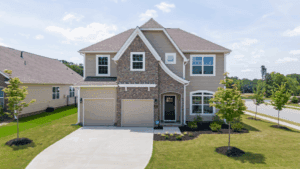What is a reverse mortgage? A reverse mortgage is a loan based on the value of your home. With a reverse mortgage, you are not selling your home to the lender; you still hold the deed and continue to live in your home. This type of mortgage allows you to defer payments on the interest and principal for an extended period.
Understand Important Financial Options
You can receive the funds from a reverse mortgage in installments over a long period or in one lump sum. With every payment made by the lender to you, the lender gains equity in your home.
Throughout your reverse mortgage, you do not need to pay anything except your property taxes and house insurance. However, when the mortgage is due to be repaid, the borrower (or their estate) must repay the total amount borrowed plus interest.
You may be able to borrow up to 55% of the total value of your home. This depends on your age, your home’s appraisal value, your current interest rate and your choice of lender. The higher your age and home’s value, the larger the reverse mortgage you could get.
Interest on a reverse mortgage is charged monthly but does not need to be paid until the mortgage is due. The interest rate can be fixed or variable and depends on several factors, including your location, property value, and both your age and your spouse’s age.
The loan must be repaid when you move out of your home or sell it. If you pass away, your spouse or estate must repay the loan. In most cases, the property is sold, and the proceeds are used to repay the reverse mortgage and accrued interest.
Qualification Criteria
To qualify for a reverse mortgage, you must be at least 55 years old. If you have any existing mortgages, a reverse mortgage lender will typically require these to be paid off before arranging the new loan. Sometimes, the reverse mortgage lender may offer to pay off your other debts.
The property must be considered your primary residence, meaning that you must live there for at least six months of the year.
Benefits
You can receive the reverse mortgage in many ways, from a lump sum to a monthly payment or a combination of both. You can use this money for anything you want; there are no restrictions. Reverse mortgages allow you to make investments, home repairs or renovations, or pay off debt or other expenses.
The Canadian government does not consider the reverse mortgage funds as taxable income. If you are a senior citizen, your old-age security will not be affected by the reverse mortgage because the government does not consider it taxable income.
Drawbacks
A reverse mortgage comes with higher fees and interest rates than a regular mortgage.
With each payment received, you lose some equity in your home, which means less equity for future use or for your heirs, potentially complicating your estate.
Failure to pay property taxes and insurance can result in the cancellation of the reverse mortgage. Additionally, you may incur prepayment penalties if you decide to pay off the mortgage early.
How Much Does a Reverse Mortgage Cost?
Costs vary by lender but generally include home appraisal and loan administration fees. Interest rates for reverse mortgages often range from 4.75% to 6% and accrue on the outstanding balance each month. The longer the reverse mortgage is in place, the more interest charges you will accumulate. Interest rates are influenced by your age, debt, type of rate, and your home’s value and location.
Where to Get a Reverse Mortgage
In Ontario, there are only two lenders that offer reverse mortgages. Home Equity Bank offers the Canadian Home Income Plan (CHIP), and Equitable Bank provides reverse mortgages through the PATH Home Plan. You can also work with a mortgage broker to set up your reverse mortgage through CHIP. This may have some added benefits.
Speak with a mortgage broker to fully explore your options. A broker can negotiate the mortgage on your behalf and inform you of the legal guidelines that govern reverse mortgages.
Many Canadians worry about rising living expenses, and many of them are senior citizens. By 2030, the senior population will grow from 6 million to 9.5 million, and reverse mortgages are gaining popularity. There are many things to consider when deciding whether to get a reverse mortgage. Get in touch with us today to learn more. Email ron@mortgagebrokerstore.com or call 416-499-2122.



